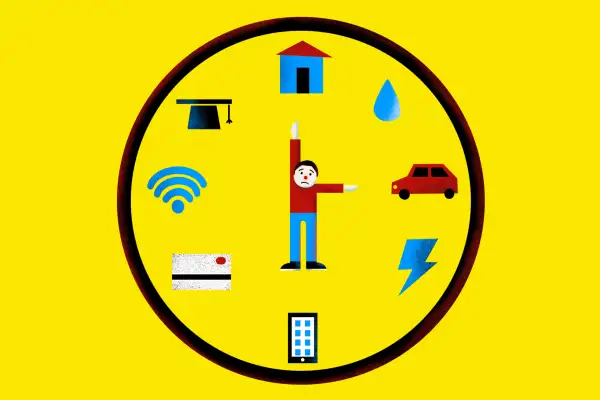You Can Get Free, Personalized Financial Advice During the Coronavirus Crisis. Here's How

As if a global pandemic weren’t enough to stress about, a simultaneous economic disaster has thousands of people asking: how am I going to pay my bills?
Dozens of financial planners around the country may be able to help you work through that question. Last week, a growing number started to volunteer their services for people affected by job loss, pay cuts, or other economic hardships caused by the spread of the coronavirus.
Organizations like the Financial Planning Association, XY Planning Network, and the Foundation for Financial Planning have set up pages on their websites dedicated to connecting certified financial planners and other resources with members of the public. Planners say they can answer questions about budgeting, cutting spending, handling market volatility, and navigating conversations with creditors.
And it’s perfectly OK if you don’t have a specific question so much as a 'I'm-stressed-and-don't-know-what-to-do' feeling.
“There’s no real structure. We’ll just talk about whatever has been on that person’s mind,” says Jared Tanimoto, a certified financial planner and owner of Ascent Wealth based in Newport Beach, Calif.
Earlier this month, Tanimoto had been thinking about signing up to volunteer at a local food bank, but he didn't want to risk contracting the virus and bringing it home to his family.
“When I saw this as an opportunity to offer help in my area of expertise, I thought, ‘of course, why not?’” he says.
This is the second major economic event that Kevin Mahoney, founder of Illumint, donated his time for. He lives in the Washington, D.C. area, and last year offered free advice during the extended government shutdown. At that time, he received few requests. This time, though, he had seven people reach out within the first couple days of putting his offer online.
So far, most of the people he’s talked with weren’t entirely out of work. Instead, they were worried about a drop in income they’d been counting on in the months ahead. He can help them triage—essentially deciding what expenses and bills are the most important. But honestly, he says, sometimes what helps the most is just listening.
“People just need to voice their concerns and fears to somebody,” he says, adding that can be hard given the taboo society puts on talking openly about money.
Here’s what you need to know about finding free advice:
- XY Planning Network and the Financial Planning Association both have pages on their websites where you can search for an advisor who fits your needs. They are here and here. You can contact the individual planners through the first two webpages and then set up a meeting. All of the planners on the FPA's list are certified financial planners who've gone through the association's training to do pro bono work. And all the planners in the XY Planning Network are fee-only planners, meaning they don't make any money from recommending certain products to clients. (You might find a name on both lists.)
- The length of the pro bono advising depends on the planner and on your scenario. In general, the planner will walk you through your options, but it’s up to you to implement them, says Kristin Pugh, an Atlanta-based financial planner who’s the chairperson of the FPA's Pro Bono Advisory Committee. Depending on your needs and goals, you may end up with a single task to carry out or a months-long timeline to work on, she says.
- All of the planners offer virtual (aka video) meetings, but it’s OK if you want to just talk over the phone, too.
- Get ready for your session by collecting a few things. Know how much money you’re bringing in and what your expenses are. And if you're worried about paying monthly bills, it's helpful to have each of those ready to go through one-by-one, Tanimoto says.
